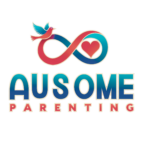Family bonds are meant to provide love and support. However, when rejection creeps into these bonds—especially for autistic children—it can cause lasting harm. In this article, we explore how family rejection affects autistic children and offer actionable steps to reinforce family bonds while promoting autism acceptance. By understanding and addressing these challenges, you can create a more nurturing, inclusive environment for your child.
Introduction
Did you know that strong family bonds can buffer the negative effects of rejection? Many families struggle when they face disapproval or misunderstanding about autism. This not only hurts the child but can also strain family relationships.
Studies show that supportive family relationships lead to higher confidence and improved mental health for autistic children. When rejection occurs, it weakens the very bonds that can provide comfort and security. The goal is to replace rejection with genuine autism acceptance and stronger family bonds.
In this article, you will learn:
- The Emotional Impact on Family Bonds: How rejection wounds your child’s heart.
- Social Isolation and Autism Acceptance: Ways to overcome loneliness and promote inclusion.
- Self-Esteem and Family Bonds: How acceptance strengthens a child’s self-worth.
- Long-Term Psychological Effects: The risks of ongoing rejection.
- The Power of Support Networks: Strategies to build lasting family bonds.
Let’s begin by understanding how emotional pain affects family bonds.
The Emotional Impact on Family Bonds
Family rejection can lead to deep emotional wounds in autistic children. The harsh words and actions weaken the bonds that should nurture their confidence and growth.
- Emotional Wounds:
- Rejection can make your child feel unworthy and unloved.
- These hurtful experiences accumulate, damaging their inner self.
- Why It Matters:
- Recognizing these emotions helps you validate your child’s feelings.
- Once you understand the pain, you can work on reinforcing family bonds.
Imagine a heart divided in two—a part full of love and another scarred by rejection. When you focus on healing these wounds, you pave the way for autism acceptance. Open communication and empathy within the family are key to mending these bonds.
Transition: With a better grasp of emotional pain, let’s explore how rejection leads to social isolation and what you can do to encourage autism acceptance.
Overcoming Social Isolation for Autism Acceptance
When an autistic child faces rejection, isolation often follows. This means the child may feel left out—even by family—and struggle to build social connections. Such isolation can limit their social growth and overall happiness.
- Isolation Effects:
- Rejection can cause a child to withdraw from social interactions.
- It may lead to a cycle where the child feels unaccepted, further deepening isolation.
- Why It Matters:
- Identifying signs of isolation early is crucial.
- Creating social opportunities helps shift the focus from rejection to genuine autism acceptance.
Tips to Overcome Social Isolation:
- Encourage Group Activities:
Find clubs or community groups that welcome autistic children. - Arrange One-on-One Playdates:
Facilitate personal interactions in a safe and understanding setting. - Explore Inclusive Online Communities:
Virtual groups can boost social skills and provide emotional support.
By actively engaging your child in inclusive activities, you foster a sense of belonging and promote the acceptance of autism. This, in turn, builds stronger family bonds as everyone sees the positive change.
Transition: Social isolation affects a child’s identity. Next, we address how these experiences lower self-esteem and suggest ways to rebuild confidence within the family.
Building Self-Esteem Through Autism Acceptance
Negative family attitudes can damage a child’s self-esteem, making them doubt their value. Constant rejection chips away at their confidence, creating a cycle of low self-worth. Strengthening family bonds through active autism acceptance is essential to break this cycle.
- Self-Esteem Challenges:
- Negative messages from family members can lead a child to feel undeserving.
- Low self-esteem hinders personal growth and resilience.
- Why It Matters:
- Boosting self-worth helps your child believe in their unique strengths.
- A confident child is more likely to face challenges and thrive.
Ways to Build Self-Esteem:
- Positive Affirmations:
Encourage your child with daily affirmations like “You are loved” and “You matter.” - Celebrate Achievements:
Acknowledge even small wins to reinforce a positive self-image. - Model Acceptance:
Show through your actions what it means to accept and appreciate differences.
When your family practices autism acceptance, every member contributes to the child’s inner strength. This positive reinforcement builds resilient self-esteem that lasts a lifetime.
Transition: Beyond self-esteem, constant rejection can have long-term psychological effects. Let’s discuss these and how to mitigate them.
 Addressing Long-Term Psychological Effects
Addressing Long-Term Psychological Effects
Ongoing family rejection does not fade quickly. Its long-term effects can compromise the mental health of an autistic child. Recognizing these risks early allows for timely intervention to protect your child’s future.
- Potential Risks:
- Chronic rejection can lead to depression and anxiety.
- It can damage the child’s ability to build lasting, healthy relationships.
- Why It Matters:
- The longer these negative patterns persist, the harder they are to break.
- Proactive measures can redirect the child’s life path toward acceptance and growth.
Strategies for Long-Term Protection:
- Early Intervention:
Seek counseling or therapy tailored for autistic children. - Continuous Monitoring:
Keep a close watch on changes in behavior or mood. - Family Workshops:
Attend sessions focused on autism acceptance and supportive parenting.
Changing negative patterns early can prevent long-term psychological issues. Reinforcing family bonds and promoting autism acceptance provide a foundation for a healthier future.
Transition: Even with these challenges, there is hope. A robust support network is key to transforming rejection into strength.
The Power of Support Networks: Strengthening Family Bonds
A solid support network is a game-changer when facing family rejection. It not only buffers the adverse effects but also reinforces the value of autism acceptance. With a reliable network, your child can flourish, and family bonds become even stronger.
- Support Network Essentials:
- Emotional support from family, friends, and professionals.
- Structured groups that understand and celebrate autism.
- Why It Matters:
- A strong network provides a safety net against negative influences.
- It creates an environment where every member practices autism acceptance.
How to Build a Support Network:
- Reach Out for Help:
Talk to friends, family, and local community groups. - Join Support Groups:
Find both local and online groups dedicated to autism support. - Utilize Community Resources:
Seek out community centers, educational programs, and specialized healthcare services.
A dependable support network transforms rejection into acceptance. It bridges gaps in understanding and strengthens family bonds in the process.
Transition: Now that we have explored the key factors, let’s consolidate everything into actionable best practices.
Best Practices for Enhancing Family Bonds and Autism Acceptance
Creating an environment where your child feels supported requires commitment. Here are some practical tips and best practices that can help you build stronger family bonds and foster autism acceptance.
- Practice Mindfulness:
- Take time each day to focus on the present moment.
- Mindfulness helps reduce stress and improves communication within the family.
- Engage in Open Communication:
- Encourage every family member to speak honestly about their feelings.
- This builds trust and reinforces acceptance at home.
- Schedule Regular Family Meetings:
- Use these meetings to discuss successes, challenges, and ways to support one another.
- They can be a safe space for everyone to express love and care.
- Celebrate Uniqueness:
- Embrace and celebrate the unique traits of every family member.
- Small celebrations can enhance self-esteem and promote autism acceptance.
- Seek Professional Guidance:
- Don’t hesitate to consult experts for tools and techniques to strengthen family bonds.
- Professional support, such as therapy or family counseling, can provide valuable insights.
These best practices offer a simple roadmap to transform rejection into a warm, accepting environment. Each step reinforces the importance of strong family bonds and promotes autism acceptance.
Transition: As we wrap up, let’s address some common challenges and offer solutions to ensure lasting change.
Overcoming Common Challenges: FAQs
Even with the best intentions, families can face obstacles. Below are common challenges along with actionable solutions to help you promote stronger bonds and foster autism acceptance.
Q1: What if my child’s emotional wounds seem too deep to heal?
- A: Start with small, consistent acts of kindness.
- Validate their feelings daily.
- Seek help from a counselor who specializes in autism.
Q2: How can I handle family members who still show bias?
- A: Lead by example.
- Offer education on autism and share positive stories.
- Enforce healthy boundaries to protect your child.
Q3: What if building a support network feels overwhelming?
- A: Take one step at a time.
- Begin with local community groups or online forums.
- Connect with other parents facing similar challenges.
Overcoming these obstacles is possible with steady effort and support. With each question answered, you move closer to creating an environment filled with acceptance and strong family bonds.
Transition: With solutions in hand, let’s review some tools and resources that can further bolster your efforts.
Tools and Resources to Boost Family Bonds and Promote Autism Acceptance
Finding the right tools can make a big difference. Here are some trusted resources and services to help you reinforce family bonds and foster autism acceptance:
- Mindfulness and Meditation Apps:
- Headspace: Guided meditations to reduce stress and improve focus.
- Calm: Tools and exercises designed to boost mindfulness.
- Journaling Tools:
- Day One: A simple digital journal to track your family’s progress.
- Penzu: An online diary to capture thoughts and breakthroughs.
- Books on Autism and Family Dynamics:
- “The Gifts of Imperfection” by Brené Brown: Embracing vulnerability and building resilience.
- “NeuroTribes” by Steve Silberman: A deep dive into autism acceptance and understanding.
- Therapy and Counseling Services:
- BetterHelp: Online counseling tailored for families.
- Talkspace: Virtual therapy sessions to strengthen family relationships.
- Support Groups and Community Centers:
- Local Autism Support Groups: Connect with parents and professionals.
- Online Forums: Platforms like Autism Speaks offer communities for shared experiences.
Integrating these tools into your daily life can significantly bolster your efforts. They serve as practical aids in your journey toward stronger family bonds and enhanced autism acceptance.
Conclusion: Turning Rejection Into Strength
Family rejection leaves deep scars but does not determine your child’s future. By understanding the emotional impact, social isolation, self-esteem issues, and long-term effects of rejection, you are better equipped to protect and empower your autistic child.
Each step you take—from acknowledging feelings to building a solid support network—transforms rejection into strength. Your efforts will pave the way for a future where every family member understands, accepts, and celebrates the unique qualities of an autistic child. Now is the time to act. Empower your family with love, knowledge, and acceptance—and witness the transformation.
Empower your family with love. Embrace autism acceptance—one step at a time.
Read more:

 Addressing Long-Term Psychological Effects
Addressing Long-Term Psychological Effects
